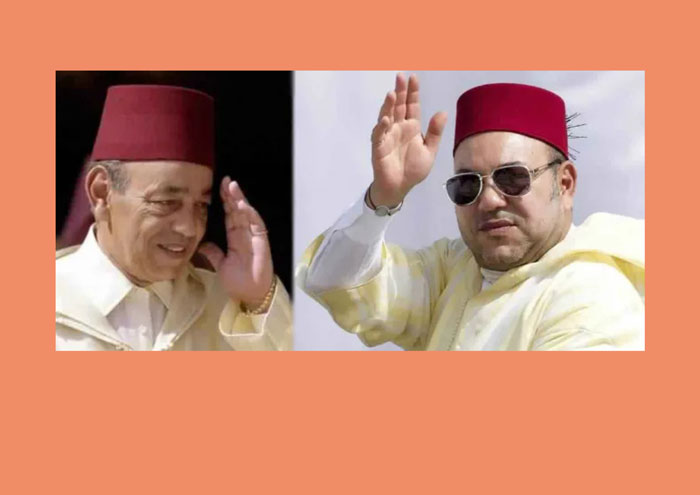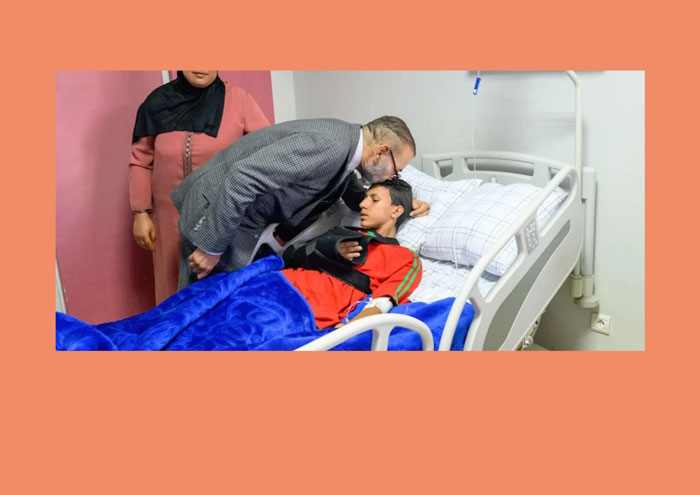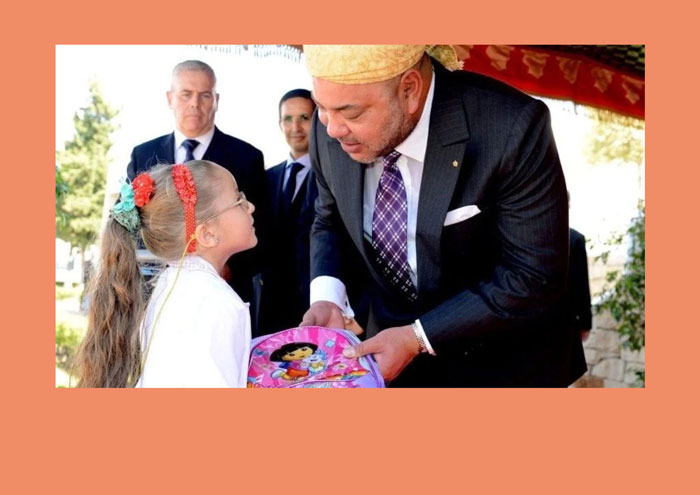
Mohammed VI: The King Who Broke the Old Rules – The King of the Poor
King Mohammed VI of Morocco, who ascended to the throne in 1999, has often been described as a monarch who has reshaped the country’s political, social, and economic landscape. His reign marks a significant departure from the more traditional monarchy of his father, King Hassan II, and has earned him the title of “The King of the Poor.” Mohammed VI’s leadership has seen him break old rules, challenge entrenched systems, and introduce a range of reforms aimed at addressing the disparities between the elite and the marginalized. His focus on social justice, economic development, and modernization has transformed Morocco into a more dynamic and forward-looking nation, yet much work remains. Let’s dive into how Mohammed VI has redefined the role of the Moroccan monarchy and earned the admiration of the country’s disadvantaged populations.
Breaking with the Past: A New Vision for Morocco
When King Mohammed VI took the throne in 1999, Morocco was a nation in transition. His father, King Hassan II, had ruled for almost four decades, with a strong hand, especially in terms of politics. Morocco during his reign was marked by political repression, limited civil liberties, and an entrenched system where the monarchy maintained significant control over all aspects of life.
In contrast, Mohammed VI introduced a new era of reforms, with a much more hands-on approach to governance. His ascension to the throne brought promises of economic development, political reform, and a stronger focus on improving the living conditions of the country’s impoverished and marginalized citizens.
A key aspect of this shift was his departure from the traditional role of the king as an aloof figure. Instead, Mohammed VI began interacting with the public directly, often visiting impoverished areas of the country, engaging in charitable activities, and listening to the concerns of everyday Moroccans. He symbolized a monarch who was not just a ruler but a leader for the people, especially the poor.

The King Who Prioritizes the Poor
One of the most significant aspects of Mohammed VI’s reign has been his commitment to reducing poverty and inequality in Morocco. Under his leadership, several social programs and initiatives have been launched with the goal of improving the quality of life for the most vulnerable members of society.

1. The Mohammed V Foundation for Solidarity
One of the key organizations founded under King Mohammed VI’s reign is the Mohammed V Foundation for Solidarity, which was established in 1999 with the mission of fighting poverty, improving health care, and supporting education for marginalized communities. The foundation’s programs span many areas, from providing housing for the homeless to supporting rural development initiatives and building schools in underserved areas.
The foundation has been instrumental in facilitating development projects in the most impoverished regions of Morocco, including rural areas where access to basic services like healthcare, water, and education has historically been limited. For example, the foundation has played a role in constructing social housing projects that provide affordable homes to low-income families, lifting many people out of squalid conditions.
2. The National Initiative for Human Development (INDH)
Launched in 2005, the National Initiative for Human Development (INDH) is another cornerstone of King Mohammed VI’s commitment to addressing poverty and inequality. This ambitious program focuses on improving the living conditions of the most disadvantaged populations by providing access to education, healthcare, clean drinking water, and employment opportunities. It also targets rural development, recognizing that many of Morocco’s most impoverished regions are located outside the major urban centers.
INDH has funded thousands of local projects aimed at empowering communities, creating jobs, and promoting sustainable development. One of its major successes has been in improving infrastructure in rural areas, such as building roads and public services, which enables local populations to thrive.
Your Morocco Adventure Start Here!
Reserve your tour, day trip, or a special activity. If you would like to customize your trip or have an idea feel free to contact us, via any platform you prefer.
A Focus on Education: Empowering the Next Generation
King Mohammed VI understands that the key to breaking the cycle of poverty lies in education. Morocco’s education system, while historically strong in some areas, has faced challenges in providing equal opportunities to all citizens, particularly those in rural and underserved regions.
To address these disparities, the king has prioritized education reform throughout his reign. He has invested heavily in the expansion of Morocco’s education system, with a special focus on improving access for poor and rural children. Schools have been built in remote areas, and scholarships and financial aid programs have been introduced to help families who otherwise wouldn’t be able to afford the cost of education.
Moreover, Mohammed VI has focused on improving the quality of education, understanding that an educated population is key to breaking free from the cycle of poverty. The establishment of vocational training centers and the promotion of technical and professional education has also helped young Moroccans develop skills that are directly applicable to the job market.
Economic Reforms for the People: The King’s Vision of Inclusive Growth
While Morocco has experienced significant economic growth under King Mohammed VI, much of that growth has traditionally benefited the urban elite. However, the king has taken steps to ensure that economic development reaches all corners of the country, particularly the poor.

1. Expanding Access to Infrastructure
In addition to his efforts in education, the king has made major strides in improving the country’s infrastructure. Investment in transportation, including the development of high-speed trains and modern airports, has connected Morocco’s cities to the rest of the world. However, Mohammed VI has also ensured that rural areas benefit from infrastructure development. New roads, bridges, and communication networks have brought remote areas into the modern era, providing economic opportunities that were previously inaccessible.
2. Rural Development and Agricultural Support
Agriculture plays a central role in Morocco’s economy, and King Mohammed VI’s government has implemented policies to support small farmers and rural communities. His Green Morocco Plan, launched in 2008, aims to increase agricultural productivity and sustainability, particularly in rural areas. The plan has provided small-scale farmers with access to training, financing, and new technology, helping them to boost their output and income. This initiative has been crucial in lifting many people out of poverty and providing them with a brighter future.
Mohammed VI – The Greatest King of his age – A Monarch for the People
King Mohammed VI’s reign represents a shift from the traditional image of a monarch as a distant, aloof figure to a hands-on, engaged leader who is actively working to improve the lives of the Moroccan people. His commitment to social justice, reducing poverty, and providing opportunities for the poor has earned him widespread admiration, particularly from Morocco’s disadvantaged communities.
While challenges remain, particularly with regard to unemployment and income inequality, King Mohammed VI’s initiatives and his “King of the Poor” ethos have had a lasting impact on the country. His focus on inclusive growth, social welfare, and infrastructure development has improved the quality of life for many Moroccans, positioning the monarchy as a progressive force in the country’s future.
Through his efforts, Mohammed VI has broken the old rules of monarchy, transforming the role of the king in Morocco and ensuring that the voices of the poor are heard and addressed. His legacy is one of compassion, reform, and a commitment to making Morocco a country where every citizen has the opportunity to thrive.
King Mohammed VI, through his reign, has embodied a vision of leadership that is not just about political power but about social responsibility, economic justice, and the pursuit of equality for all Moroccans, regardless of their background or status. He truly lives up to his reputation as the “King of the Poor.”
